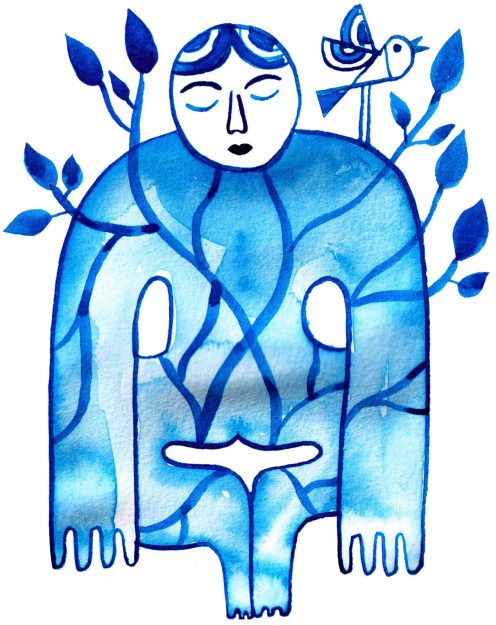“Radiating kindness over the entire world: Spreading upwards to the skies, And downwards to the depths. . . .” These are the Buddha’s instructions in the Karaniya Metta Sutta, the “Sutra of Lovingkindness,” for extending happiness to all beings. Metta (Skt., maitri), or “lovingkindness,” is the penultimate of the ten paramis, or perfections. It appears directly after adhitthana, determination, perhaps because, as Acariya Dhammapala says in his Treatise on the Paramis, to do this challenging work our resolve must be unshakable. Our offering is meant to be complete, unconditional, and indiscriminate—like the rays of the sun, radiating equally over all beings. We’re not asked to mete out judgment or calculate merit. We don’t have to withhold or reward. Lovingkindness just shines, fueled by the recognition that every one of us ultimately wants the same thing: to be safe, happy, and at ease.
In metta meditation, we first wish happiness to ourselves, then to those we love, those we feel neutral toward, those we struggle with, and finally to all beings. And although it may seem odd that in a tradition based on selflessness we’d begin this practice with ourselves, it makes good sense. As the poet Galway Kinnell wrote, “Sometimes it is necessary to reteach a thing its loveliness.” And what better place to start than by relearning to love ourselves?

- “To love is, first of all, to accept ourselves as we actually are. That is why in this love meditation, ‘Know thyself’ is the first practice of love.” –Thich Nhat Hanh
- “The quality of lovingkindness is simply who you are. You don’t need a reason to manifest your natural state. You can develop lovingkindness just because. You can be compassionate just because—not for some profound reason or because the Buddha or the dharma pushes you into it. You do it because you are able to do it.” –Jetsun Khandro Rinpoche
- Tip: If you are struggling to offer lovingkindness to yourself or another, remind yourself: “I want to be happy and free of suffering, just as other beings do.” Let lovingkindness drive your actions, trusting that when your aspiration is clear, good results will follow.
- “In metta practice, it is normal for the doubting mind to pop up and challenge the notion of loving ourselves and others. Don’t let this doubt stop you. It is important to know that metta is not a practice of perfection, but one of cultivation.” –JoAnna Hardy

- Tip: Remember that the paramis are “perfections” not because their practice is supposed to be flawless, but because they’re based on wisdom: the realization of our innate wholeness or completeness. If you start judging yourself or your practice, offer that judging mind the same all-encompassing lovingkindness—and keep going.
♦
This is the ninth installment of Pocket Paramis, our series on the ten perfections: generosity, ethical conduct, renunciation, wisdom, energy, patience, truthfulness, determination, lovingkindness, and equanimity. A printable version is available here.
Thank you for subscribing to Tricycle! As a nonprofit, we depend on readers like you to keep Buddhist teachings and practices widely available.
